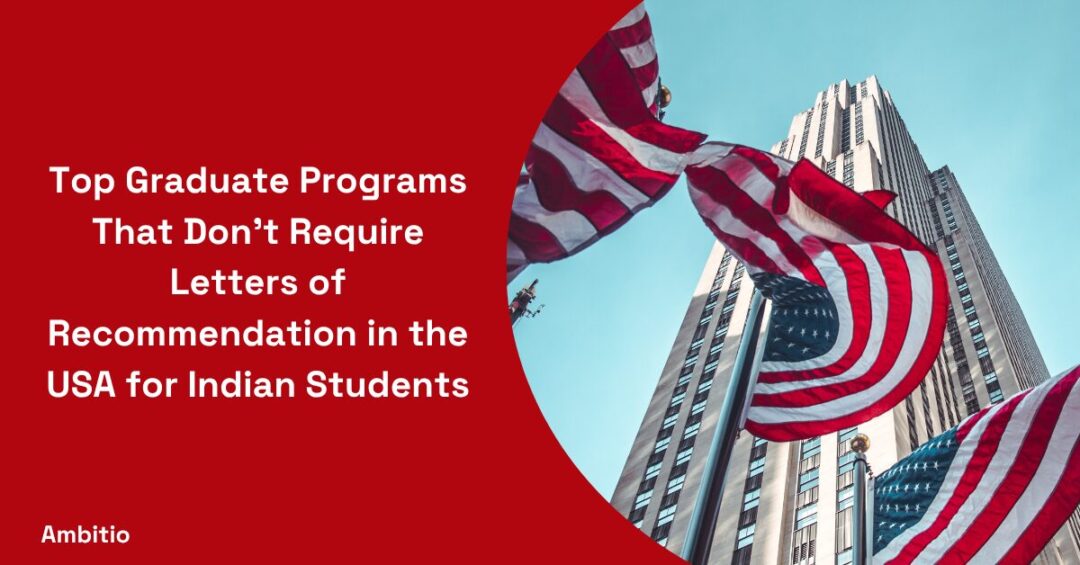11 December 2024
5 minutes read
Masters in Investment Banking in the USA

Investment banking stands as a pinnacle of the finance industry, offering a dynamic blend of analytical rigor and strategic thinking. In 2024, pursuing a Master’s in Investment or Finance in the United States will continue to be a transformative decision for ambitious professionals aiming to scale the heights of investment banking and investment management.
This guide delves into the nuances of such advanced degrees, spotlighting the best universities and colleges in the USA, and elucidating the career prospects that await.
Investment Banking and Finance in the USA 2024
Understanding the Landscape
Investment banking is a sector characterized by its high stakes, competitive edge, and substantial rewards. It encompasses areas such as mergers and acquisitions (M&A), corporate finance, and securities underwriting.
The field demands a robust skill set in financial modeling, risk management, and financial analysis. A Master’s degree, such as an MS in Finance or a Master’s in Finance, equips aspirants with these essential skills, preparing them for the complexities of the finance industry.
Why Pursue a Master’s in Investment?
The reasons are manifold:
- Career Advancement: A Master’s degree significantly enhances career prospects, offering pathways to roles like investment banker, financial analyst, and risk manager.
- Skill Enhancement: Advanced courses in quantitative finance, financial risk, and analytical methods prepare graduates for the challenges of the finance sector.
- Global Network: Studying in the USA provides access to an extensive network of finance professionals, alumni, and industry insiders.
Top Universities in the USA for MS in Finance
Selecting the right institution is crucial. Here’s a snapshot of what to consider:
| University Name | Annual Fees | Program Highlights |
|---|---|---|
| MIT Sloan School of Management | $77,168 | Specialization in Financial Engineering and Analytics |
| Stanford Graduate School of Business | $74,706 | Focus on Investment Management and Corporate Finance |
| University of Chicago Booth School of Business | $73,440 | Comprehensive curriculum including Real Estate Finance |
| University of Pennsylvania Wharton | $80,432 | Leading in Hedge Fund Management and Private Equity |
| Harvard Business School | $73,440 | Emphasis on Leadership in Investment Banking and Finance |
Admission Requirements
Gaining admission to a top Master’s in Finance program in the USA demands a comprehensive application that showcases your academic prowess, professional achievements, and potential contributions to the finance field. Here’s what you need to prepare:
- Academic Transcripts: Submit transcripts from all undergraduate and, if applicable, graduate institutions attended. High academic standing, particularly in quantitative courses, is crucial.
- GMAT/GRE Scores: Most programs require these standardized test scores. Aim for a high score to stand out, especially in the quantitative sections.
- Professional Work Experience: While not mandatory for all programs, relevant work experience in finance or related fields can significantly enhance your application.
- Letters of Recommendation: Obtain recommendations from academic instructors or professional supervisors who can vouch for your intellectual capabilities, leadership qualities, and financial acumen.
- Statement of Purpose: Craft a compelling essay that outlines your interest in investment banking, your career goals, and why you’re a strong fit for the program.
- Updated CV/Resume: Highlight your academic achievements, professional experience, leadership roles, and any other relevant activities.
- English Language Proficiency: International students must demonstrate proficiency in English through TOEFL or IELTS scores if they are from non-English speaking countries.
- Application Fees: Be prepared to pay the non-refundable application fee required by most institutions.
The Curriculum: What to Expect
| Core Course | Description |
|---|---|
| Financial Modeling | Techniques for building mathematical models of financial statements |
| Corporate Finance | Strategies for managing company funds and increasing value |
| Risk Management | Identifying, analyzing, and mitigating financial risks |
| Quantitative Methods | Applying mathematical and statistical techniques to finance |
| Investment Strategies | Developing and implementing strategies for asset management |
Electives may include Private Equity, Wealth Management, Financial Engineering, and more, allowing students to tailor their education to their career goals.
Career Prospects and Salary Expectations
Graduates can expect to enter the banking sector, asset management, or financial consultancy, among other fields. The average salary varies widely by role and experience but is generally competitive, reflecting the high demand and specialized skill set of these professionals.
| Role | Average Salary (Annual) | Description |
|---|---|---|
| Investment Banker | $100,000 – $150,000 | Advises on and facilitates mergers, acquisitions, and other financial transactions |
| Financial Analyst | $85,000 – $125,000 | Performs financial analysis for external or internal clients to make business decisions |
| Risk Manager | $110,000 – $160,000 | Identifies and mitigates financial risks to protect assets |
| Private Equity Analyst | $100,000 – $150,000 | Analyzes and advises on investments in private companies |
| Hedge Fund Manager | $120,000 – $200,000+ | Manages hedge funds with strategies to reduce risk and maximize returns |
Navigating Your Path: Steps to Success
Embarking on a Master’s in Investment Banking is a journey that requires careful planning and execution. Follow these steps to maximize your chances of admission and subsequent career success:
- Research and Shortlist Programs: Investigate various Master’s in Finance programs, focusing on those that align with your career aspirations and have strong connections to the investment banking sector.
- Prepare for GMAT/GRE: Dedicate ample time to study for these exams, considering a prep course if necessary to ensure you achieve competitive scores.
- Gain Relevant Experience: If possible, work in finance-related roles to build a strong foundation and make your application more compelling.
- Network with Alumni and Current Students: Reach out to alumni and current students of your target programs to gain insights into the application process and program experience.
- Craft a Strong Application: Pay careful attention to each component of your application, tailoring your essays to reflect the unique offerings and values of each program.
- Apply Early: Consider applying in the first or second round of admissions to demonstrate your strong interest in the program and increase your chances of acceptance.
- Prepare for Interviews: If selected for an interview, practice articulating your goals, experiences, and reasons for pursuing a Master’s in Investment Banking.
- Secure Financial Aid: Explore scholarships, grants, and loan options early in the application process to ensure you can finance your studies.
- Plan for a Global Career: As you prepare for your studies, consider how you will leverage your Master’s degree on a global scale, including potential international roles in investment banking.
- Stay Informed About the Finance Sector: Keep abreast of the latest trends and developments in investment banking to inform your studies and future career path.
Conclusion
Embarking on a Master’s in Investment Banking in the USA in 2024 offers a gateway to high-profile careers in the finance sector. With degrees tailored to imbue students with the necessary analytical, quantitative, and financial modeling skills, graduates are well-equipped to navigate the complexities of investment banking.
The choice of institution can significantly impact your career trajectory, making it crucial to consider program specifics, annual fees, and curriculum focus. As the finance industry continues to evolve, a Master’s degree remains a valuable asset for those seeking to excel in investment banking, asset management, and beyond.
FAQs
Q1: Is work experience mandatory for admission into MS in Finance programs in the USA?
While not always mandatory, relevant work experience strengthens your application and is highly valued by many top programs.
Q2: How important are GMAT or GRE scores for admission?
GMAT or GRE scores are crucial components of the application process, reflecting your quantitative and analytical capabilities.
Q3: Can international students apply for financial aid?
Yes, many universities offer financial aid to international students, including scholarships, grants, and assistantships.
Q4: What is the duration of most MS in Finance programs in the USA?
Most programs are designed to be completed in one to two years, depending on full-time or part-time enrollment.
Q5: Are there opportunities for practical learning in these programs?
Yes, many programs offer internships, case studies, and project-based learning to provide practical experience.

You can study at top universities worldwide!
Get expert tips and tricks to get into top universities with a free expert session.
Book Your Free 30-Minute Session Now! Book a call now




























